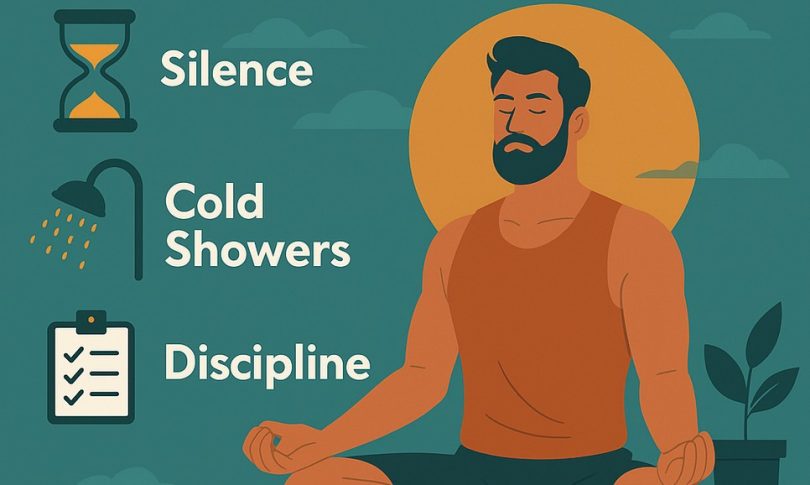Seeking help for mental health issues can be daunting, but it’s a crucial step towards healing and well-being. In this comprehensive guide, we’ll explore the importance of asking for help, how to recognize when you need it, who you can turn to, and strategies for overcoming obstacles. By the end of this article, you’ll have the tools and confidence to reach out for support.
Table of Contents
- Understanding Mental Health
- Recognizing the Need for Help
- Who Can You Turn to for Help?
- How to Approach Asking for Help
- Resources for Getting Help
- Creating a Support System
- Overcoming Common Obstacles
Key Takeaways
- Recognize signs that indicate you may need help with your mental health.
- Reach out to friends, family, or mental health professionals for support.
- Overcome barriers such as shame or fear by being honest and open about your struggles.
- Build a support network and communicate your needs effectively.
- Take the first step towards seeking help—it’s a sign of strength, not weakness.
Understanding Mental Health
Mental health refers to your emotional, psychological, and social well-being. It affects how you think, feel, and act, and influences how you handle stress, relate to others, and make choices. Common mental health disorders include anxiety disorders, depression, bipolar disorder, and schizophrenia. These conditions can significantly impact your daily life and overall functioning.
Signs and Symptoms
Recognizing the signs and symptoms of mental health issues is the first step towards seeking help. Symptoms vary depending on the disorder but may include:
| Disorder | Signs and Symptoms |
|---|---|
| Anxiety Disorders | Excessive worrying, restlessness, difficulty concentrating |
| Depression | Persistent sadness, loss of interest in activities, changes in appetite or sleep |
| Bipolar Disorder | Extreme mood swings, impulsivity, increased energy |
| Schizophrenia | Delusions, hallucinations, disorganized thinking |
It’s important to seek help if you’re experiencing these symptoms or notice them in someone else.
Impact of Untreated Mental Health Issues
Untreated mental health issues can have serious consequences, affecting all aspects of life including relationships, work, and physical health. They may lead to substance abuse, self-harm, or even suicidal thoughts or actions.
Overcoming Barriers
Many individuals hesitate to seek help due to stigma, fear, or uncertainty about treatment. However, it’s essential to recognize that seeking help is a courageous and necessary step towards recovery.
Recognizing the Need for Help
Recognizing when you need help with your mental health can be challenging, but there are signs that indicate it may be time to reach out:
- Feeling overwhelmed or unable to cope with daily tasks
- Experiencing persistent sadness or hopelessness
- Having trouble concentrating or making decisions
- Engaging in harmful behaviors such as substance abuse or self-harm
- Experiencing significant changes in sleep or appetite
If you’re experiencing any of these symptoms, it’s important to seek support from trusted individuals or professionals.
Who Can You Turn to for Help?
When it comes to seeking help for mental health issues, there are several resources available:
Friends and Family
Your loved ones can provide invaluable support during difficult times. Don’t hesitate to reach out to them and share your struggles.
Mental Health Professionals
Psychologists, psychiatrists, and counselors are trained to help individuals cope with mental health challenges. They can provide therapy, medication, and other forms of treatment.
Support Groups and Helplines
Joining a support group or contacting a helpline can connect you with others who understand what you’re going through. These resources offer empathy, encouragement, and practical advice.
Online Resources and Communities
There are numerous online resources and communities dedicated to mental health support. Websites, forums, and social media platforms can provide information, peer support, and virtual therapy options.
How to Approach Asking for Help
Asking for help with your mental health can feel daunting, but there are strategies you can use to make the process easier:
- Choose the right time and place for the conversation
- Be honest and open about your feelings and experiences
- Express what kind of support you need
- Listen actively and be receptive to feedback
- Remember that it’s okay to ask for help
Approaching the conversation with courage and vulnerability can strengthen your connections with others and pave the way for healing.

Resources for Getting Help
When seeking help for your mental health, it’s important to explore the available resources:
Overview of Available Services
There are various mental health services offered, including:
- Individual therapy
- Group therapy
- Medication management
- Crisis intervention
- Community support programs
Finding Affordable or Free Support
Affordable and free mental health support options are available for those with financial limitations. These may include:
- Sliding scale fees
- Community health centers
- Nonprofit organizations
- Online therapy platforms with reduced rates
Exploring Treatment Options
It’s essential to explore different treatment options to find what works best for you. This may include a combination of therapy, medication, lifestyle changes, and holistic approaches.

Creating a Support System
Building a support system is crucial for managing your mental health:
Building Relationships
Nurture relationships with friends, family, and supportive individuals who can offer empathy, encouragement, and practical assistance.
Effective Communication
Communicate openly about your needs, boundaries, and feelings. Express gratitude for the support you receive and reciprocate whenever possible.
Self-Care Practices
Prioritize self-care activities that promote mental and emotional well-being, such as exercise, mindfulness, hobbies, and relaxation techniques.

Overcoming Common Obstacles
Despite the importance of seeking help for mental health, obstacles may arise:
Addressing Concerns About Confidentiality
Confidentiality is a priority in mental health treatment. Discuss confidentiality policies with your therapist or provider to alleviate concerns.
Dealing With Skepticism
Skepticism from others may stem from lack of understanding or misconceptions about mental health. Educate them about your experiences and the importance of seeking help.
Managing Practical Challenges
Time constraints and financial limitations can make seeking help challenging. Explore flexible options and resources that accommodate your schedule and budget.
Frequently Asked Questions (FAQs)
1. How do I know if I need professional help for my mental health?
To determine if you need professional help, consider the severity and duration of your symptoms, as well as their impact on your daily life. If you’re unsure, consulting with a mental health professional can provide clarity.
2. What should I do if I’m worried about someone else’s mental health?
If you’re concerned about someone else’s mental health, approach them with empathy and offer support. Encourage them to seek professional help and provide resources and assistance as needed.
3. Are there any online resources for mental health support?
Yes, there are numerous online resources for mental health support, including websites, forums, and virtual therapy platforms. These resources offer information, peer support, and access to trained professionals.

4. Can I get help for mental health issues without insurance?
Yes, there are options for obtaining mental health support without insurance. Many community health centers, nonprofit organizations, and online therapy platforms offer sliding scale fees or discounted rates for individuals without insurance.
5. How do I find the right therapist for me?
Finding the right therapist involves researching different therapists, considering their specialties and approaches to therapy, and scheduling initial consultations to determine compatibility. It may take time and experimentation to find a therapist who meets your needs.
6. Is it normal to feel ashamed or embarrassed about asking for help with mental health?
It’s common to feel ashamed or embarrassed about asking for help with mental health due to stigma and societal misconceptions. However, it’s important to recognize that seeking help is a sign of strength and self-awareness, not weakness.
Conclusion
Seeking help for mental health is a courageous and essential step towards healing and well-being. By recognizing the signs that indicate you may need help, reaching out to supportive individuals and professionals, and overcoming barriers, you can embark on a journey towards recovery. Remember that asking for help is not a sign of weakness, but rather a testament to your strength and resilience.
- National Alliance on Mental Illness (NAMI)
- Psychology Today Therapist Directory
- SAMHSA National Helpline
- Crisis Text Line
Exploring these resources can provide valuable information and support for your mental health journey.






